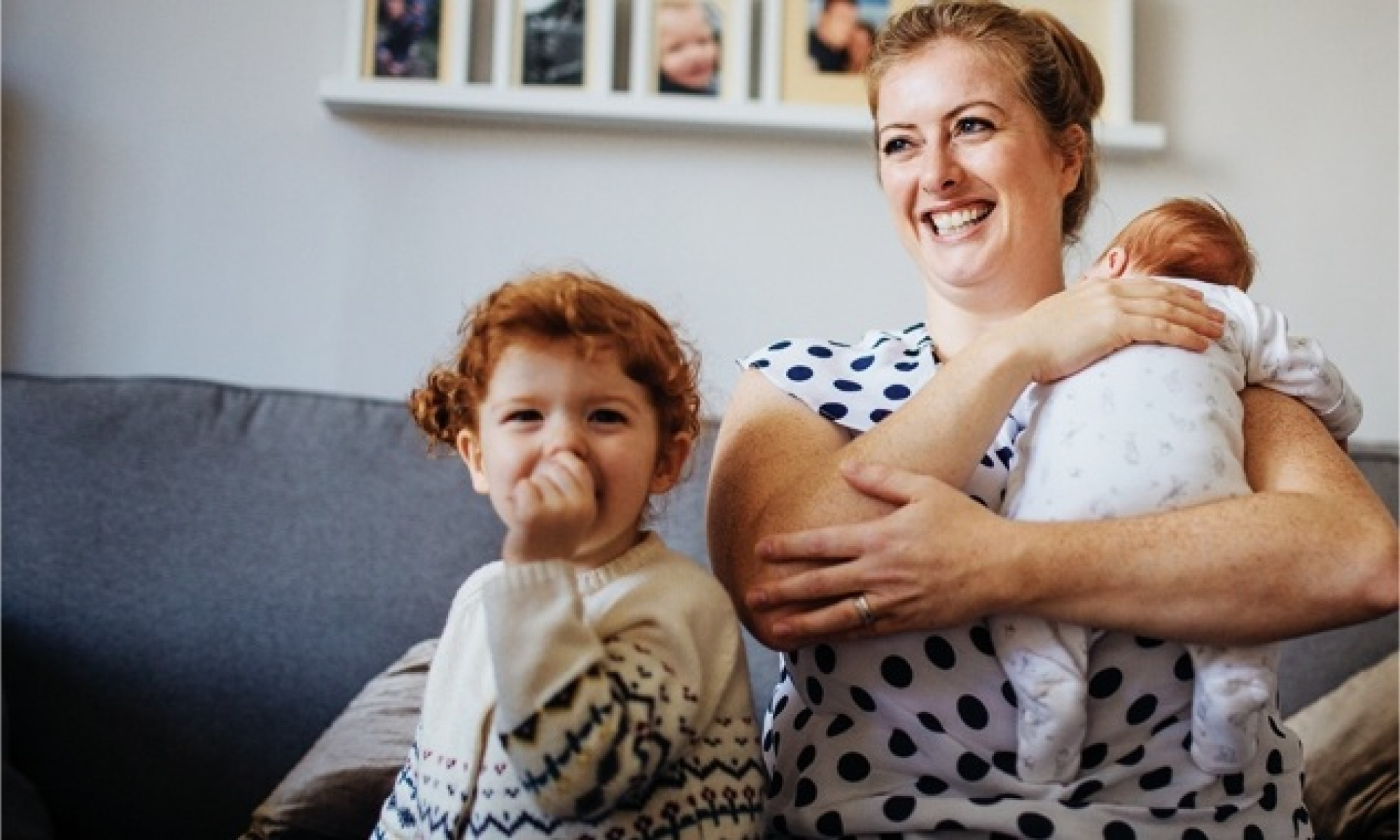
-
Children Issues
The welfare of your children is the most important concern you’ll face during your divorce or separation. We’ll help you find the best possible solution to protect their wellbeing.
How we help you
We’re here to safeguard the best interests of your children, while offering support and guidance throughout the whole process.
We know that every case is different. That’s why we tailor our services to suit your individual needs.
Through mediation and collaborative law, our family law solicitors and mediators can help you reach a fair outcome without the need for legal proceedings.
Where that’s not possible, we’ll work hard to secure the right solution for your children. Our kind and understanding approach will make sure everything runs as smoothly and amicably as possible.
Key Contacts: Mark Reeves, Richard Perry
-
Cohabitation
Through expert advice and a personal approach, we’ll help you set up the right cohabitation agreement to protect everything that matters to you. We have a long, successful history of advising cohabitating couples on their rights. Our specialist family law solicitors can draw up a written cohabitation agreement for you. This will set out what happens to your property and financial arrangements if you separate. We’ll also talk you through any possible financial claims that can be made.
What’s cohabitation?
Cohabitation is where an unmarried couple live together in a long-term relationship.
Why a cohabitation agreement is vital for unmarried couples
Despite what you may have read or heard, there’s no common law right for cohabitating couples to claim financial relief after separating. This can leave you in a very vulnerable position.
Key Contacts: Mark Reeves, Richard Perry
-
Collaborative Law
Through a cost-effective, friendly approach, our dedicated team will help you safeguard your best interests and get a fair settlement without the need for court.
What’s collaborative law?
The collaborative approach is similar to mediation. It’s designed for couples wishing to avoid the costs and stress of the courts, and resolve their dispute in a co-operative and friendly way.
Unlike mediation, where the mediator has to act neutrally, the talks are carried out by the two lawyers. Each of you has access to legal advice in the meeting straight away. Your lawyer will be by your side throughout.
It’s different from litigation, because you, your former partner and the two lawyers will sign an agreement that no one will start court proceedings during the talks. The two lawyers work together as a team to help you and your former partner come to an agreement that you each feel is fair.
As with our mediation service, this route is ideal for resolving financial disputes and children issuesresulting from divorce or cohabitation disputes. It’s also a useful means for discussing pre-nuptial agreements and cohabitation agreements.
Key Contacts: Mark Reeves, Richard Perry
-
Divorce
We know it’s hard. But seeking the right advice early on can make all the difference. It’s our job to help you get through this period of your life as painlessly and as cost effectively as possible. We’ll make sure you achieve the fairest outcome for you and your loved ones.
How we help you
We understand how emotionally draining a divorce can be for all involved. That’s why we’ll be there to guide and support you throughout the whole process. The most important thing to us is the security and wellbeing of you and your family.
If you don’t want to go through the court, we can offer a range of alternative options. Through mediation and collaborative law, we can help you come to a fair settlement without the need for costly courtroom battles.
If this is unavoidable, we’ll work tirelessly for the best interests of you and your loved ones, and help you gain a just outcome.
Key Contacts: Mark Reeves, Richard Perry
-
Family Litigation
If court proceedings are unavoidable, we’ll work hard to get the best possible outcome for you and your family. Trying to settle family disputes away from the court doesn’t always work for everyone. In some cases, it’s impossible. For example, if your former partner is disposing of assets then a freezing injunction will be needed. Likewise, if your children are at risk of abduction, you will need a court order to protect them.
How we help you
We have many years' experience dealing with family disputes, and we’ll work tirelessly to make sure you protect everything and everyone that matters to you.
We’ll be mindful of the legal costs of your case at all times. We’ll let you know of all likely costs from the start, so there’ll be no surprises along the way.
Key Contacts: Mark Reeves, Richard Perry
-
Family Mediation
This is a cheaper and more amicable way of settling the issue regarding your children without the need to go to court. As part of mediation, you and your partner will meet regularly with one of our solicitor-mediators, who'll help you talk through your dispute between yourselves with the view to reaching a fair and appropriate agreement. Once you're both agreed, we'll help you draw up a formal document that sets out the agreement you've made. Read our What is divorce mediation? blog for more on mediation. You can also find out more about children issues in our Who do the kids get in a divorce? blog.
How we help you
Our mediators will at all times act neutrally and independently, and will not take sides. They’ll help you and your former partner reach a fair agreement in a civilised and dignified way. And they’ll manage the discussions to stop them from turning into arguments.
Call our dedicated Mediation Helpline now on (01482) 590280 to see how we can help you settle your dispute.
How much does mediation cost?
One of the advantages of mediation is that you can share the costs of one mediator between you both. If you see your own separate solicitor, you’ll each have to pay for that service. So it’s usually the case that mediation is cheaper than the traditional approach of hiring a solicitor or going through court proceedings.
Legal aid can help you pay your mediation costs. But if legal aid is not available, mediation for a couple will cost £210 plus VAT per hour.
Are my children involved in the mediation process?
If your dispute is about your children, the mediator will not ordinarily speak to them. Some mediators are qualified to speak to children who are old enough to understand what’s going on. One of the three mediators in Hull who have this qualification is Julie Kerwin.
Where can I go for mediation in Hull?
There are seven solicitors’ firms in Hull and Beverley who have at least one trained mediator. Gosschalks has three: Mark Reeves, Richard Perry and Julie Kerwin.
Is mediation confidential?
Everything you say in mediation sessions is ‘privileged’. What this means is that whatever you discuss will not be able to be repeated in court (if proceedings can't be avoided), unless you and your partner agree that that may happen.
Although your discussions are privilege and can’t be repeated, your financial documents can be used in legal proceedings which may follow if you don’t reach an agreement.
Can mediators prepare court orders?
No, mediators can’t prepare court orders on your behalf. If you reach an agreement then you would both have to seek the help of a solicitor or prepare any required document for court yourselves.
How do I qualify for mediation?
Before you can start mediation, both of you will attend a separate Mediation Information and Assessment Meeting (MIAM). Or you can attend together if you both agree.
In this meeting, a mediator will explain the whole process and decide whether your case is suitable for mediation. The mediator might not accept mediation if he or she thinks one of you is being unduly influenced by the other.
Even if mediation has already started, the mediator can bring the process to an end at any time. They may decide that one of you is not being full and frank in your financial disclosure. Or they may decide that the mediation sessions are not fair and balanced.
Is it compulsory to attend a MIAM?
It used to be the case that before legal aid was granted, you would have to attend a MIAM.
It’s thought that changes in legislation will mean that before proceedings (particularly in relation to children) start at court, both parties will have to attend a MIAM.
It’s expected that this change in legislation will come in April of this year. Although at the moment, the new expected rules are not published. The introduction of these rules is likely to increase the number of mediations in the future.
How much does a MIAM cost?
If you attend the MIAM separately, you’ll pay £87 plus VAT. If you attend the meeting together then the cost is £65 plus VAT each. If you or your partner qualifies for legal aid, the MIAM will be free for both of you.
Mediation referral form
This is for any other solicitor or referring organisation wishing to refer mediation to Gosschalks.
You can download our mediation referral form here.
Key Contacts: Mark Reeves, Richard Perry, Julie Kerwin
-
Financial Disputes
Our experienced, sympathetic team will support and advise you through your financial dispute, and protect the best interests of your family. Sometimes, financial disputes can happen between couples during and after a divorce or separation. These can relate to pensions, property and maintenance.
How we help you
Our specialist family law solicitors will give you all the guidance and support you need to reach the fairest outcome possible.
We understand how tough it can be when going through a divorce or separation. We’re here not only to safeguard your assets, but your wellbeing too.
Key Contacts: Mark Reeves, Richard Perry
-
Legal Aid
Is legal aid still available for family mediation?
Yes. Although legal aid is generally no longer available for advice from solicitors or representation in court proceedings, it may still be available to pay for the cost of mediation.
The application for legal aid for mediation is ‘means-tested’ and will depend on your income and level of savings. Our specialist team can assess your eligibility for legal aid. And, if eligible, will be able to grant legal aid to pay for the cost of your mediation.
We also offer a range of flexible fixed fees
Because of the removal of legal aid for all other areas of family law advice and support, we've developed a range of flexible fixed fees to suit all circumstances.
Key Contacts: Mark Reeves, Richard Perry
-
Pre-Nuptial and Post-Nuptial Agreements
By drafting a pre or post-nuptial/civil partnership agreement, we can help you avoid disputes if you ever separate or divorce.
What's a pre or post-nuptial agreement?
A pre-nuptial, post-nuptial or civil partnership agreement sets out what happens to assets and financial arrangements if your relationship breaks down, which can help you avoid disputes in the future.
Initially an American concept, pre-nuptial and post-nuptial agreements are becoming ever more popular now in the UK. At the moment, these agreements are not fully binding in the English courts. But there’s a belief that the courts should uphold them, providing that certain conditions are fulfilled and it would be fair to do so.
How we help you
Our specialist family lawyers can advise on whether these agreements are suitable for you. And we’ll support and guide you through the whole process.
Key Contacts: Mark Reeves, Richard Perry















